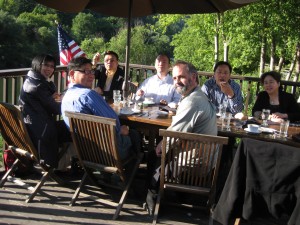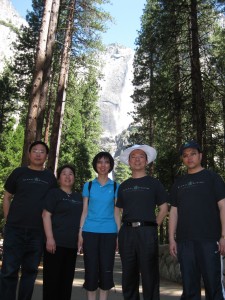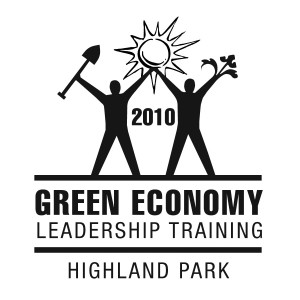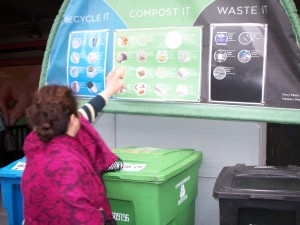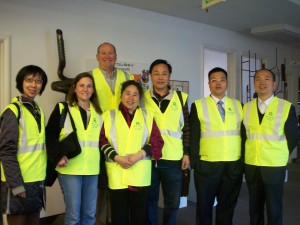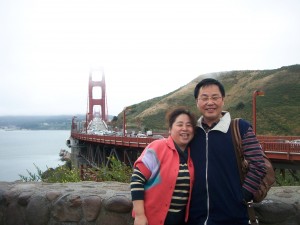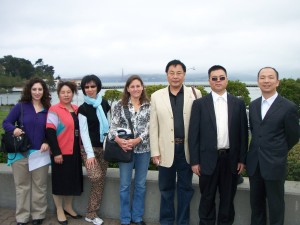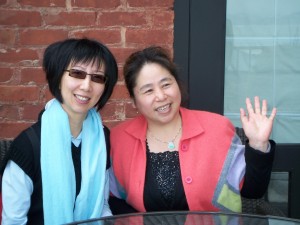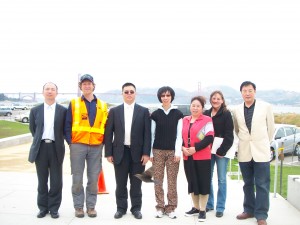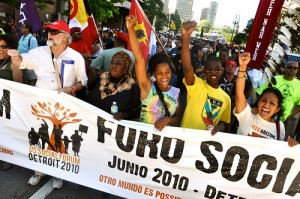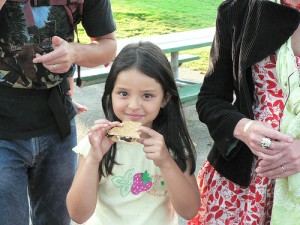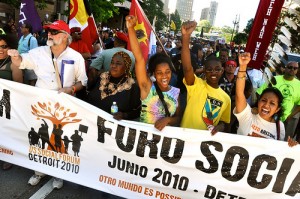(This summer, our Michigan team is working with GreenNation on the Green Economy Leadership Training program. This entry was written by GELT-er Zack Holden. Cross-posted on Solutionaries.net)
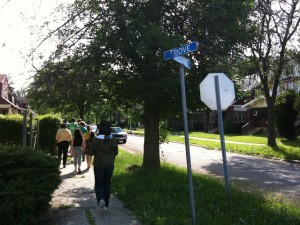 As we came to the door, I was feeling pretty negative. Tired, frustrated with the cancellation of our early morning appointment, I had bitterly informed my partners that they should take the ‘lead’ on this house, that I just wanted to follow orders and let one of them take up the task of explaining who we were and everything we were doing to the home owner. I had a vague sense of ill ease as we reached our destination on Hill Street in the northwest of Highland Park, as the last time we had lugged a weatherization kit through the neighborhood, we had been told we were ‘in the wrong neighborhood’ by a group of teens.
As we came to the door, I was feeling pretty negative. Tired, frustrated with the cancellation of our early morning appointment, I had bitterly informed my partners that they should take the ‘lead’ on this house, that I just wanted to follow orders and let one of them take up the task of explaining who we were and everything we were doing to the home owner. I had a vague sense of ill ease as we reached our destination on Hill Street in the northwest of Highland Park, as the last time we had lugged a weatherization kit through the neighborhood, we had been told we were ‘in the wrong neighborhood’ by a group of teens.
When we came up the front steps and knocked on the door, I noticed the tape holding together the screen door and the lingering smell of stale tobacco, thinking we were in for a interesting experience. We heard a man hollering at us, asking who we were. A woman soon came to the door, asking who we were and who we were looking for, telling us she didn’t want our ‘shit’, Needless to say, we were taken aback by her rather aggressive manner, and the weatherization was nearly dead on arrival, until the man, her husband, informed her that he had in fact signed up. She was further relieved when (in direct contravention of my previous promise to my partners) I explained to her that our service was in fact free, and that we would not only give her the supplies but actually install them as well. When she realized we weren’t trying to scam her or otherwise pull some trick, her demeanor instantly shifted from stand-offish to absolutely friendly, and a smile came over her face.
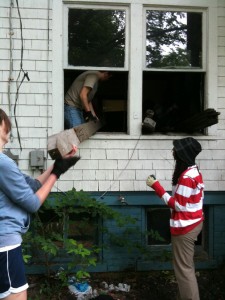 As we headed into the basement, her husband offered a brief explanation of her initial resistance to us- there had been a ‘death’ recently, and tensions were running high. I didn’t have to wait long to hear the full story. As I burned my fingers trying to install CFLs, she told me that the death in question was in fact a triple murder that had recently occurred on the block, leaving three young men dead, with no news coverage and little hope of justice. She explained her initial hostility, saying there was a huge drug problem on the block.
As we headed into the basement, her husband offered a brief explanation of her initial resistance to us- there had been a ‘death’ recently, and tensions were running high. I didn’t have to wait long to hear the full story. As I burned my fingers trying to install CFLs, she told me that the death in question was in fact a triple murder that had recently occurred on the block, leaving three young men dead, with no news coverage and little hope of justice. She explained her initial hostility, saying there was a huge drug problem on the block.
These were the first revelations of many. As we worked our way through her home, sealing holes, replacing bulbs and sink heads and putting up weatherstripping, we learned that she had reclaimed the home from drug dealers who had taken over the house after her mother’s death, and how strangers still showed up at her door looking for a fix (she thought we were of this category), how drive by shootings were a regular occurrence (instead of putting plastic kits over windows with leaky edges as we might in other homes, we covered the windows taken out by a recent shooting). How murders were common and a 90 year old woman had been raped on the block just the other week. How she wanted to get out of the neighborhood, but she was living on her unemployment checks after losing her job as a medical assistant.
This is the sort of situation that can present the central problem of organizing around environmental and sustainability issues in places like Highland Park. How could she devote attention to protecting our national parks or atmosphere when protecting her home is a matter of life or death? I honestly believe that the solution lies in programs such as Green Economy Leadership Training (GELT) and weatherization in particular. It allows for community and its residents to work together not only to save money on their utility bill and understand environmental impacts, but to also reconnect with one another. Weatherization makes both environmental and economic sense. I hope it can present an outstanding site to develop the necessary, mutually beneficial relationships in places such as Highland Park.

